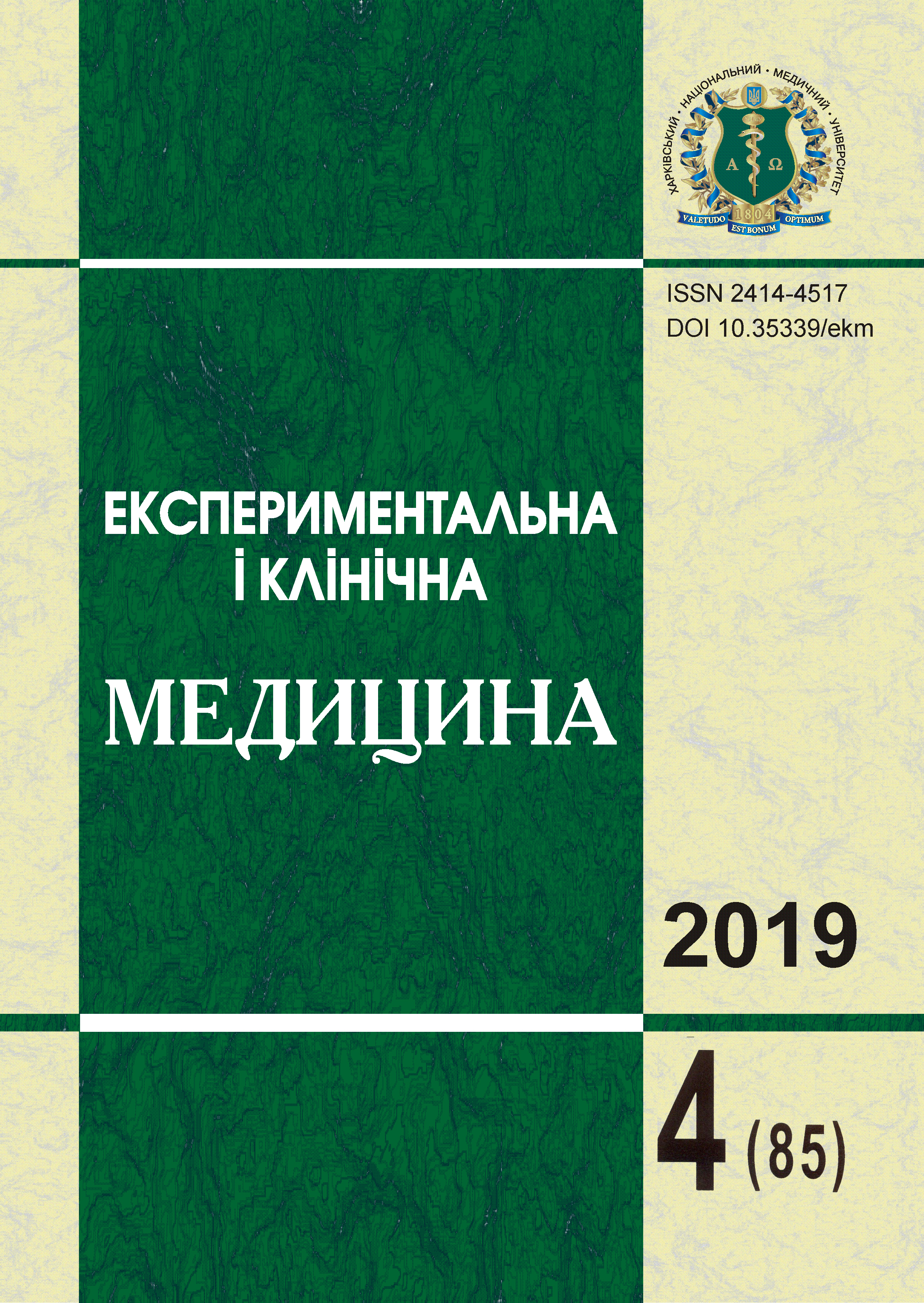Abstract
109 men with CP and their wives were examined. According to the criterion of presence/absence of marital satisfaction, the surveyed couples were divided into two groups. The first group (group 1) included 73 (67.0 %) couples with low or low levels of marital satisfaction. The second (group 2) included 36 (33.0 %) married couples who were satisfied with their own relationship. The comprehensive examination included, in addition to standard clinical methods, a clinical-psychological and psychodiagnostic study. As a result of the study, it was found that men with CP were found to have manifestations of anxiety and depression, much more pronounced among people dissatisfied with marital relations. They were also characterized by a predominance of negative spectrum emotions in the palette of emotional response, while in patients experiencing marital satisfaction, the emotional spectrum was dominated by positive emotional coloration. Among the wives of patients, there was a similar trend of greater prevalence and severity of symptoms of pathological anxiety and depression among women who experienced marital dissatisfaction. Thus, despite the presence of CP in all surveyed men, which became a provoking factor in the formation of a negative emotional background and reactions of the anxiety-depressive spectrum, patients who were satisfied with the marital relationship showed significantly better psychoemotional performance than patients, dissatisfied with marital relations. The success of marital relations in this case became a shock absorber of the negative psychogenic effects of the disease, which provided a significant difference in the psycho-emotional state of men with CP.
References
Horpynchenko I.I., Nurimanov K.R., Savchenko V.S., Poroshyna T.V., Nedohonova O.A., Drannik H.M. (2016). Kombinovane likuvannia khvorykh na khronichnyi abakterialnyi prostatyt z depresyvnym syndromom [Combined treatment of patients with chronic abacterial prostatitis with depressive syndrome]. Zdorove muzhchynu - Men's health, vol. 58, pp. 69-73 [in Ukrainian].
Nickel J.C., Roehrborn C.G., O'Leary M.P. et al. (2008). The relationship between prostate inflammation and lower urinary tract symptoms: examination of baseline data from the reduce trial. Eur. Urol., vol. 54, pp. 1379-1384.
Schaeffer A.J., Knauss J.S., Landis J.R. et al. (2002). Chronic Prostatitis Collaborative Research Network Study Group. Leukocyte and bacterial counts do not correlate with severity of symptoms in men with chronic prostatitis: the national institutes of health chronic prostatitis cohort study. J. Urol., vol. 168, pp. 1048-1053.
Krsmanovic A., Tripp D.A., Nickel J.C. et al. (2014). Psychosocial mechanisms of the pain and quality of life relationship for chronic prostatitis/chronic pelvic pain syndrome (CP/CPPS). Can. Urol. Assoc. J., vol. 8 (11-12), pp. 403-408.
Pontari M.A., McNaughton-Collins M., O'leary M.P. et.al. (2005). CPCRN Study G A case-control study of risk factors in men with chronic pelvic pain syndrome. B.J.U. Int., vol. 96, pp. 559-565.
Smith K.B., Tripp D., Pukall C., Nickel J.C. (2007). Predictors of sexual and relationship functioning in couples with Chronic Prostatitis/Chronic Pelvic Pain Syndrome. J Sex Med., vol. 4 (3), pp. 734-744, doi: 10.1111/j.1743-6109.2007.00466.x.
Smith K.B., Pukall C.F., Tripp D.A., Nickel J.C. (2007). Sexual and relationship functioning in men with chronic prostatitis/chronic pelvic pain syndrome and their partners. Arch Sex Behav., vol. 36 (2), pp. 301-311.
Potapenko O.A. (2007). Seksualnaia dezadaptatsyia supruzheskoi pary pry urolohycheskoi patolohyy u muzha y ee psykhoterapyia [Sexual maladaptation of a married couple with urological pathology in her husband and her psychotherapy]. Medychna psykholohiia - Medical psychology, vol. 2 (1), pp. 66-68 [in Russian].
Domoratskyi V.A. (2009). Medytsynskaia seksolohyia y psykhoterapyia seksualnykh rasstroistv [Medical sexology and psychotherapy for sexual disorders]. M.: Akademycheskyi Proekt; Kultura, 470 p. [in Russian].
Maruta N.A. et al. (2004). Kryteryi kachestva zhyzny v psykhyatrycheskoi praktyke [Criterion of quality of life in psychiatric practice]. Kh.: RYF «Arsys», LTD, 240 p. [in Russian].
Raihorodskyi D.Y. (1999). Praktycheskaia psykhodyahnostyka [Practical psychodiagnostics]. Samara-Bakhrakh, 260 p. [in Russian].
Petrovsky A.V., Yaroshevsky M.H. Eds. (1985). Kratkyi psykholohycheskyi slovar [Brief psychological dictionary]. M. [in Russian].
Spylberher Ch.D. (1983). Kontseptualnie y metodycheskye problemi yssledovanyia trevohy [Conceptual and methodological problems of anxiety research]. Stress y trevoha v sporte. Mezhdunar. sb. - Stress and anxiety in sports. International collection. Yu. L. Khanyn (Ed.). M., pp. 12-24 [in Russian].
Asotskyi V.V. (2014). Osoblyvosti vyiaviv tryvozhnosti u pozhezhnykh-riatuvalnykiv Derzhavnoi Sluzhby Ukrainy z nadzvychainykh sytuatsii [Peculiarities of anxiety in firefighters and rescuers of the State Emergency Service of Ukraine]. Zbirnyk naukovykh prats Natsionalnoi Akademii Derzhavnoi Prykordonnoi Sluzhby Ukrainy seriia: pedahohichni ta psykholohichni nauky - Collection of scientific works of the National Academy of the State Border Guard Service of Ukraine series: pedagogical and psychological sciences, vol. 3 (72), pp. 259-271 [in Ukrainian].

